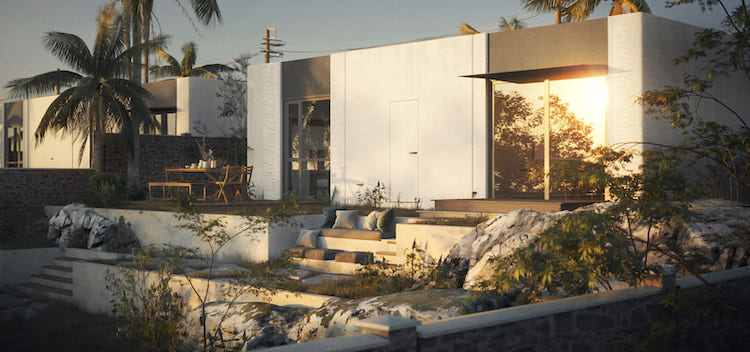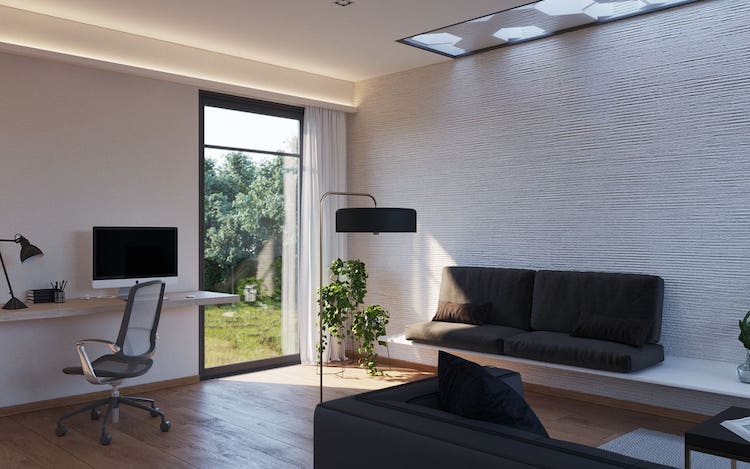
Mighty Buildings aims to automate 80 percent of construction process
Mighty Buildings, a startup providing automated solutions for modern home building, has launched out of stealth after graduating from Y Combinator in winter 2018 and raising a total of $30 million from Khosla Ventures, Y Combinator, SV Angel, CoreVC, and others.
The company says it uses a combination of 3D printing and prefabrication techniques to create a production-as-a-service platform that will “automate up to 80 percent of the building process”.
Mighty Buildings says it has a unique approach that is both project- and design-agnostic, and can create “everything from small complex components to panels to full-size volumetric modules”.
By being able to 3D-print more of the building structure, Mighty Buildings says it can build homes with 95 percent fewer labor hours at double the speed of conventional construction, with 10 times less waste.
A 350-square-foot studio unit can be printed in under 24 hours, claims the company.

Mighty Buildings is certified under California’s Factory Built Housing program to create units utilizing 3D printing, and was the first company to achieve certification under the UL 3401 standard for evaluating 3D-printed building structures and assemblies.
UL is a US company that develops and publishes technical and safety standards.
To date, Mighty Buildings has successfully installed its first two accessory dwelling units in San Ramon and San Diego, with additional units awaiting delivery.
Slava Solonitsyn, Mighty Buildings’ CEO and co-founder, says: “Because we’re building homes for people to live in, we’ve been very deliberate in carrying out our vision to make housing better. This isn’t software that can be debugged on the fly.
“We’re now ready to scale our production with full confidence in our certifications and code compliance for both our material and technology.”

While the average traditional stick-built home in California costs $327 per square foot, Mighty Buildings says its homes cost up to 45 percent less than comparable homes, adding that its automated production costs are 20 to 30 percent lower than traditional prefab methods.
An added advantage to Mighty Buildings’ prefab approach is its flexibility and efficiency for producing custom floor plans, even at the scale of a single unit.
This is largely due to optimization via a software-driven, design-to-production process and the low cost of printing material.
Eric Migicovsky, partner at Y Combinator, says: “With a strong foundation in robotics, manufacturing, and sustainability, the Mighty Buildings founding team knows the different facets of the issues that face modern housing.
“Accessory dwelling units are just the start in further building out their unique approach to building.”
According to McKinsey, the construction sector misses out on up to $1.6 trillion of value per year that could be unlocked with higher productivity, which is where Mighty Buildings wants to make a contribution.
